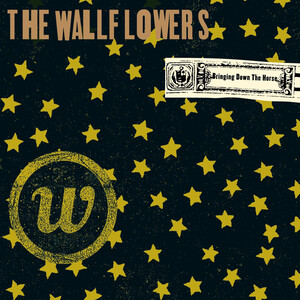Bringing Down the Horse
| Bringing Down the Horse | ||||
|---|---|---|---|---|
 |
||||
| Studio album by The Wallflowers | ||||
| Released | May 21, 1996 | |||
| Recorded | 1994 – 1996 | |||
| Studio |
Sunset Sound, Hollywood; Groove Masters, Santa Monica; O'Henry Sound Studios, Burbank; House of Blues Sunset, West Hollywood; Brooklyn Studios, Brooklyn |
|||
| Genre | Alternative rock, roots rock | |||
| Length | 51:14 | |||
| Language | English | |||
| Label | Interscope | |||
| Producer | T Bone Burnett | |||
| The Wallflowers chronology | ||||
|
||||
| Singles from Bringing Down the Horse | ||||
|
||||
| Professional ratings | |
|---|---|
| Review scores | |
| Source | Rating |
| Allmusic | |
| Rolling Stone | |
| Robert Christgau | |
Bringing Down the Horse is the second album by the American rock band The Wallflowers. It was released worldwide on May 21, 1996. The album was produced by T Bone Burnett and features hits such as "One Headlight", "6th Avenue Heartache", "The Difference", and "Three Marlenas".
Bringing Down the Horse went quadruple platinum and is the Wallflowers' highest-selling album to date. Three songs from the album were nominated for Grammy Awards; in 1997 the Wallflowers received two nominations, both for "6th Avenue Heartache". In 1998 the band received three additional nominations; two for "One Headlight" and one for "The Difference". "One Headlight" won in both categories it was nominated in. The song was the band's most popular single, reaching no. 1 on the Billboard Mainstream Rock, Modern Rock, and Adult top 40 charts. "One Headlight" is also listed at no.58 in Rolling Stone's list of the 100 Greatest Pop Songs.
Bringing Down the Horse was issued on vinyl for the first time as a double LP set for the album's 20th anniversary, released by Interscope/Universal Music Group, on May 13, 2016.
The Wallflowers released their debut album in 1992 on Virgin Records and subsequently parted ways with the label shortly after the album's release. The band went back to playing clubs in Los Angeles in hopes of securing another record deal. In the year it took to get another deal, the Wallflowers went through a number of personnel changes; the band's bass player Barrie Maguire and drummer Peter Yanowitz both left the band in 1993. Maguire was quickly replaced by Greg Richling, but the drummer position remained open. Soon after Yanowitz's departure, the Wallflowers were noticed by Jimmy Iovine and Tom Whalley of Interscope Records and the band was signed to the label in 1994.
...
Wikipedia
